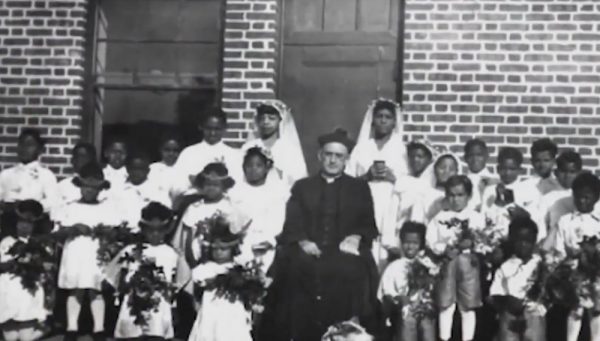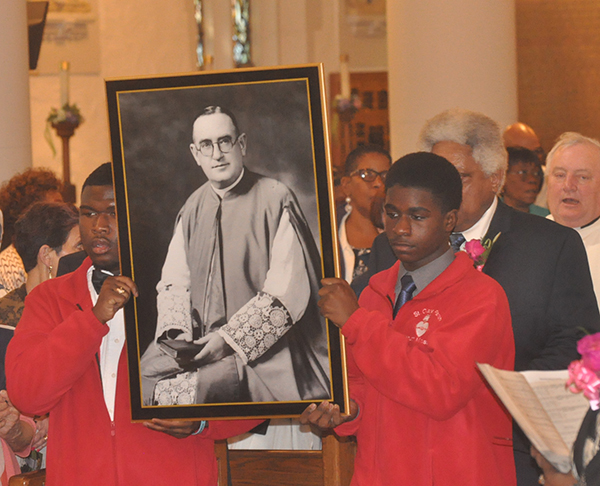
WINDSOR TERRACE — Msgr. Quinn was a man of great courage — even in the face of the Ku Klux Klan.
The man who convinced the Diocese of Brooklyn to establish St. Peter Claver Church, the first African-American church in the diocese, was also a man who waged a long battle for civil rights for his parishioners and the larger black community.
In 1928, Msgr. Quinn founded an orphanage and summer camp in Wading River on Long Island, primarily serving black children from Bedford-Stuyvesant, where St. Peter Claver was located.
According to the Father Bernard John Quinn Guild, the KKK burned the orphanage to the ground twice in the space of a single year. Both times a determined Msgr. Quinn rebuilt it.
He also fought for better living conditions and job opportunities for black people in his parish, according to Msgr. Paul Jervis, whose 2005 book “Quintessential Priest, the Life of Father Bernard J. Quinn,” examines Msgr. Quinn’s life and work.
The world Msgr. Quinn and his parishioners inhabited in the 1920s and 1930s was a world where overt racism was an everyday occurance. These were the days long before the Civil Rights movement and the Voting Rights Act of the 1960s. Blacks were denied job opportunities. In 1932, during the Great Depression, the black unemployment rate in the U.S. was approximately 50 percent, double that of whites, according to the Library of Congress.
Even when it came to religion, blacks faced discrimination, said Msgr. Jervis.

“Before the Civil Rights movement, blacks were very much discriminated against, not only in civil society, but they were not really accepted in the church. He started a parish for them. They did not have a place either in society. At the same time, he also fought for civil rights. He had a lot of interaction with the city officials to call for jobs that were closed to blacks. He fought for rights and benefits that were denied to them at that time,” Msgr. Jervis explained.
Msgr. Quinn called on city officials so frequently to push for jobs for blacks that the officials came to know and respect him. “He had a very good relationship with many of them. When he died, many officials attended (his funeral),” Msgr. Jervis said.
Father Alonzo Cox, St. Martin De Porres Parish’s pastor, which includes St. Peter Claver Church, said Msgr. Quinn also had to fight racial discrimination closer to home.
When he was working to establish St. Peter Claver Church, many white Catholics balked at the idea of a black church.
“At that time, many of the white people in the neighborhood, in the community, asked ‘Why are you doing this? Everything is great the way it is,’” Father Cox said.
“I think that for me personally, Msgr. Quinn was the person who would challenge everyone, especially the white community at that time, to open their hearts and minds to help build a community that is rooted in Christ. Christ wants to be with everyone, black, white, with everybody in the community. So I think Msgr. Quinn did get that pushback. He was challenged by white people in the community,” Father Cox added.
Msgr. Quinn’s steadfastness in fighting against racial discrimination is something to admire, according to Bishop Nicholas DiMarzio.
“There’s a pushback that he got in his fight for racial equality. It was a product at the time. Back in the 1930s, institutional racism was very clear at that point. And so he was ahead of his time when he understood what people needed. African-Americans were gravitating to Catholicism. And he just withstood any critical backlash to help the church grow,” the bishop said.
